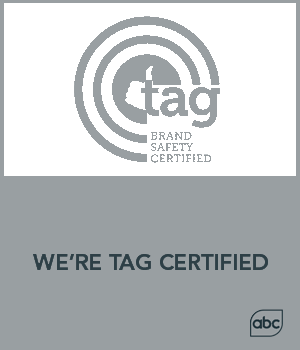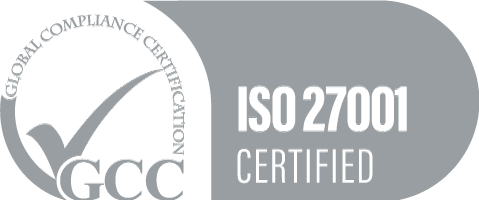Table of Content
In the ever-evolving world of digital advertising, conversion tracking is key to understanding if the campaign strategies are effective in delivering performance. However, with the rise of privacy concerns and regulatory requirements, advertisers are facing a new and pressing challenge where the increasing adoption of Consent Management Platforms (CMPs) has led to noticeable drop in conversion numbers across various advertising systems. This blog explores what CMPs are, why they have led to a drop in conversion rates, and how Knorex offers a solution to address it.
What is a Consent Management Platform (CMP)?
A Consent Management Platform (CMP) is a software tool that helps businesses in navigating the complexities of managing user consent for data collection and processing, in compliance with privacy regulations such as the California Consumer Privacy Act (CCPA) in the United States and the General Data Protection Regulation (GDPR) in the European Union. A CMP gives consumers control over their data, making consent collection easier and clearer by respecting consumers’ preferences on their information use. Hence, a CMP enables businesses to obtain, store, and manage consumers’ permissions, ensuring legal compliance and fostering consumer trust.
CMPs play a critical role in facilitating transparent and lawful data practices, ensuring that businesses obtain explicit consent from consumers in a legally compliant manner before tracking their online behavior or collecting their personal information. By doing so, CMPs help businesses avoid heavy fines and build trust with their audience. This ensures that consumers have a say in what happens to their data and that businesses respect that.
How does a CMP Work?
A CMP works by displaying a consent banner or pop-up when a consumer first visits a website. This banner informs the consumer about data collection practices and provides the options to consent or refuse. The consent information is stored and managed by the CMP, ensuring that consumer preferences are respected across sessions and devices.
Consumer Consent
Consumer consent refers to the explicit permission granted by the consumer for the businesses to track their online activities and gather their personal data. CMP enables consumers to have the information to decide their privacy preferences. The type of consent includes:
- Opt-In: This simple means saying “yes” to tracking and data collection. You actively agree to let businesses track your activity or use your information by taking affirmative action, such as checking a box or clicking a button.
- Opt-Out: This simple means saying “no” to tracking and data collection. You have the option to decline or revoke consent for tracking or data collection, by taking specific actions, such as deselecting a pre-checked box.
Compliance with privacy laws
CMP operates within the framework of laws that sets the rules for how businesses must handle consumer data and impose penalties for violations. These include CCPA/CPRA (US California), CDPA (US Virginia), GDPR (EU GDPR & UK GDPR), LGPD (Brazil), POPIA (South Africa), PDPA (Singapore), and more.
Tracking Pixels and Their Significance in Digital Advertising
Tracking pixels are small snippets of code embedded within websites and ads. When a consumer visits a webpage or opens an ad containing a tracking pixel, a request is sent to the server hosting the pixel, allowing advertisers to monitor user interactions, track conversions, and measure the effectiveness of their marketing efforts. Tracking pixels play a pivotal role in digital advertising by providing invaluable insights into user behavior and campaign performance.
By using tracking pixels, advertisers can accurately measure the effectiveness of their campaigns, determine ROI, and make data-driven decisions to optimize their marketing strategies. Without this capability, assessing the success of digital advertising efforts becomes much more challenging.
The Problem: Conversion Rate Decline Associated with CMPs
CMPs restrain the firing of tracking pixels by requiring consumer consent before data collection can occur. If a consumer does not provide consent, the tracking pixel does not fire, leading to incomplete data and gaps in conversion tracking.
When a consumer encounters a consent banner from the CMP, they are prompted to accept or decline data collection. Many consumers, wary of privacy issues, opt to decline, which means that their interactions are not tracked. This results in incomplete data and skewed conversion metrics. This phenomenon has been observed across the board, with advertisers grappling with dwindling conversion rates and a lack of actionable insights.
Consider a hypothetical e-commerce site that implemented a CMP to comply with CPRA. Before the CMP implementation, the site’s conversion tracking was robust, capturing data on all consumer interactions. Post-implementation, only 50% of consumers opted in, leading to a 50% drop in measurable conversions. This dramatic decrease illustrates the profound impact CMPs can have on tracking efficacy.
The inability to accurately measure a significant portion of consumer interactions hampers the ability to gauge campaign effectiveness and understand attribution. Without the ability to track user interactions due to consent restrictions, advertisers face challenges in assessing the performance of their digital advertising campaigns. This disruption forces a shift in advertising strategies, often resulting in less precise targeting and difficulties in determining which marketing touchpoints contributed most to the conversions.
Impact to Advertising Campaigns
The introduction of Consent Management Platforms (CMPs) has profound implications on advertising campaigns and results, presenting several challenges:
Loss of Valuable Data for Insights to Optimize Ad Campaigns
- Tracking pixels not firing: When consumers do not consent, tracking pixels are inactive, leading to a loss of essential tracking data.
- Missing crucial insights: Advertisers lose valuable data on consumer behavior, preferences, and conversion patterns.
- No campaign optimization: Without comprehensive data, refining targeting strategies and maximizing ad performance becomes difficult or even impossible.
Decrease in the Effectiveness of Performance Analytics and Attribution Efforts
- Challenges in performance analytics: Effective performance analytics rely on the ability to track various metrics such as clicks, impressions, and conversions. But without consumer consent, tracking pixels cannot collect necessary insights such as attribution data.
- Reduced precision and impact: Inability to analyze performance accurately leads to less personalized and effective ads.
- Lower conversion rates: Ineffective analysis results in decreased conversion rates and ROI. Businesses may conclude that the advertising is ineffective and limit their advertising, or misallocate their advertising dollars, thus hurting their overall business health and growth.
Overall Impact on ROI and Advertising Budgets
- Inaccurate conversion tracking: The inability to track conversions accurately hampers campaign assessment.
- Inefficient budget allocation: Advertisers may waste resources on underperforming campaigns due to incomplete data and misallocation.
- Missed high-converting opportunities: Lack of data leads to missed opportunities for targeting high-converting audiences.
- Negative financial impact: All inefficiencies collectively reduce ROI and strain advertising budgets.
Long-Term Implications for Customer Acquisition and Retention
- Challenges in acquiring new customers: Limited data makes it harder to identify and convert potential customers.
- Difficulty in maintaining engagement: Without tracking, keeping existing customers engaged becomes a challenge.
- Stagnation in growth: Over time, these issues can lead to stagnant or declining customer growth.
- Impacted customer loyalty: Inconsistent targeting and engagement efforts can erode customer loyalty and retention.
Knorex’s Solution: Bridging the Gap Between Compliance and Tracking
Knorex is a leading provider of cross-channel digital advertising products and solutions, focusing on leveraging innovative technology to simplify digital marketing. With a deep understanding of the digital advertising landscape and the complexities of privacy regulations, Knorex has developed innovative solutions that help advertisers to navigate the challenges posed by CMPs without compromising compliance or campaign performance.
Overview of Knorex’s Solution
Knorex’s solution is designed to seamlessly integrate with CMPs, ensuring that advertisers can continue to track and assess campaign effectiveness while respecting consumer consent and adhering to privacy laws. By using sophisticated algorithms and data management techniques, Knorex enables advertisers to capture and utilize consented data more efficiently.
- Advanced Consent Management Integration: Knorex XPO platform is built to work in tandem with CMPs, allowing for real-time consent verification and data collection. This ensures that only consented data is tracked and used for advertising purposes.
- AI-Powered Data Analytics: Leveraging artificial intelligence, Knorex analyzes consumer behavior and preferences within the bounds of consent, providing advertisers with deep insights to optimize their campaigns.
- Privacy-First Tracking Solutions: Knorex employs innovative tracking mechanisms that prioritize consumer privacy while still delivering valuable data. These solutions comply with stringent privacy regulations, ensuring that consumer consent is always respected.
Knorex’s solution is compliant with global privacy laws, including CCPA/CPRA, and other regional data protection regulations. By implementing robust data protection measures and transparent consent management practices, Knorex ensures that advertisers can maximize their tracking and performance analytics capabilities without breaching legal requirements.
Addressing CMP Challenges with Knorex’s Solution
The implementation of CMPs presents unique challenges for tracking pixels. Without consumer consent via the CMP, our tracking pixels, including both conversion and retargeting pixels, are restricted from firing, as tracking is not allowed without explicit permission.
Here at Knorex, we have developed a cookie-less solution tailored for websites with CMP integration. This approach enables us to count conversions through ‘conversion pings,’ ensuring compliance while still enabling accurate tracking and identification of consumers.
Our solution aligns with the best practices followed by Google Ads’ Advanced Consent Mode V2 (About consent mode – Google Ads Help), ensuring compliance and effective tracking:
- Normal Functionality upon Consent: When users grant consent for tracking, the tracking pixels and other tags operate normally, facilitating effective remarketing and conversion tracking in accordance with user preferences.
- Cookieless Communication upon Denial of Consent: In cases where users deny consent for tracking, our pixel does not store cookies. Instead, our pixels communicate consent status and user activity through conversion pings (cookieless pings or signals) to Knorex’s server. The algorithm then determines if the conversion has occurred based on the received signals, still ensuring compliance with privacy regulations.
By seamlessly integrating with CMPs and leveraging advanced technologies, Knorex bridges the gap between compliance and conversion, empowering advertisers to navigate the complexities of digital advertising with confidence and success.
Benefits of Using Knorex’s Solution
Knorex’s solution offers a range of benefits for advertisers looking to overcome the challenges arising upon Consent Management Platforms (CMPs) implementation:
- Restoration of Accurate Conversion Tracking
One of the primary benefits of using Knorex’s solution is the restoration of accurate conversion tracking. By seamlessly integrating with CMPs, Knorex ensures that tracking pixels fire correctly once consumer consent is obtained. This accurate tracking allows advertisers to:
- Monitor campaign performance with precise data.
- Identify successful strategies and areas for improvement.
- Optimize ad spend based on reliable conversion metrics.
- Enhanced Campaign Effectiveness and Attribution Insights
Knorex’s solution significantly enhances the ability to measure campaign performance and gain attribution insights, even within the constraints of CMPs. By leveraging advanced tracking mechanisms and AI-powered analytics, advertisers can:
- Reach consented consumers with personalized ads.
- Increase engagement and conversion rates through key measurement metrics and attribution insights.
- Maintain consistent communication with potential customers, driving them down the sales funnel.
- Improvement in Ad Campaign Performance and ROI
With accurate tracking of key performance metrics and attribution data, Knorex’s solution leads to noticeable improvements in overall ad campaign performance and return on investment (ROI). Benefits include:
- Higher conversion rates: Optimized campaigns result in more successful conversions.
- Better budget allocation: Data-driven insights allow for smarter spending.
- Enhanced ad effectiveness: Personalized, targeted ads resonate more with audiences, increasing overall campaign success.
- Peace of Mind with Compliance to Privacy Regulations
Knorex prioritizes compliance with global privacy regulations such as GDPR and CCPA, providing advertisers with peace of mind. This compliance ensures that:
- Consumer consent is respected: Advertisers can operate confidently, knowing they are following legal requirements.
- Data collection practices are transparent: Building trust with consumers by being upfront about data usage.
- Reduced risk of legal issues: Compliance minimizes the potential for costly fines and reputational damage.
In summary, Knorex’s solution offers substantial benefits for advertisers navigating the complexities of CMPs and privacy regulations. By restoring accurate conversion tracking, enhancing analytics and attribution capabilities, improving ad campaign performance, and ensuring compliance with privacy laws, Knorex empowers businesses to achieve their advertising goals effectively and ethically.
Best Practices for Advertisers Using CMPs
Optimizing CMP Settings
Advertisers should work closely with their CMP providers to optimize settings and minimize conversion tracking loss. This includes configuring the consent banner to encourage opt-ins and ensuring that the consumer experience is as seamless as possible.
Encouraging Consumer Opt-In
Strategies to encourage consumer opt-in include providing clear and concise information about the benefits of data collection, offering incentives for consent, and ensuring that the consent request is visually appealing and non-intrusive.
Transparency and Consumer Education
Building trust with consumers through transparency and education is crucial. Advertisers should explain how data will be used and the benefits it provides, fostering a sense of security and trust that can lead to higher opt-in rates.
Balancing Compliance and Marketing Effectiveness
Achieving a balance between compliance and marketing effectiveness requires ongoing monitoring and adjustment. Advertisers should stay informed about changes in data privacy regulations and continuously refine their strategies to ensure they remain effective and compliant.
The Future of Consent Management and Digital Advertising
Emerging Trends in CMP Technology
The future of CMP technology will likely see advancements in consumer experience, increased automation, and better integration with marketing systems. These developments will help advertisers navigate the privacy landscape more effectively. CMPs will become a critical component of the digital advertising ecosystem, providing the necessary infrastructure to manage consumer consent and ensure compliance. Their role will expand as privacy becomes an even greater focus for consumers and regulators alike.
Privacy-compliant Solutions
As data privacy concerns continue to grow, regulations will evolve, becoming more stringent and widespread. Advertisers must keep ahead of these changes by adopting flexible and compliant solutions like Knorex’s.
Staying Ahead with Innovative Solutions
Advertisers who leverage innovative solutions like Knorex’s will be better positioned to navigate the challenges of a privacy-first landscape. By staying ahead of regulatory changes and adopting cutting-edge technology, they can maintain effective marketing strategies and achieve their business goals.
Conclusion
The rise of CMPs has introduced significant challenges for advertisers, particularly in conversion tracking and measuring performance and attribution insights. However, with the right approach and appropriate solutions like those offered by Knorex, it is possible to effectively handle the complex situation. Knorex’s technology ensures compliance with privacy regulations while maintaining robust tracking capabilities, providing advertisers with the tools they need to succeed in a privacy-first world.
Let us show you how our technology can help you overcome the challenges of CMPs, optimize your campaigns, and achieve unparalleled success. Contact us today https://www.knorex.com/knorex-video-demo to schedule a demo.





